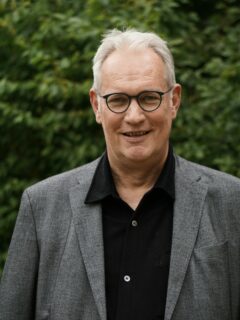Christian Schicha
Prof. Dr. Christian Schicha
The production of publicity about socially relevant issues in liberal democracies of the type of the Federal Republic of Germany as a political demand is one of the central tasks of the media. The public sphere is interpreted as a communication system in which information and opinions are articulated and exchanged. Above all, open access to information without blockades is central. The creation of the public sphere in the understanding of a control and criticism function serves to provide transparency about socially relevant developments, informs about the goals of communities of interest and is protected by the Basic Law through the freedom of opinion, speech, assembly, art and press.
Literature is a consumer and artistic good. It is written, published, bought, collected, read and depends on mediation. Insofar as literature is interpreted as a fictional art form that primarily fulfils an entertainment function, it has a less relevant public function than literature that is controversial and generates public follow-up discourse. When texts cause offence, there are calls for bans. Books were and are burned, censored and indexed. Violent and sexual depictions are criticised, as are controversial political statements. Discourses on cultural appropriation are also relevant. In such cases, controversial literary works are not published or readings are prevented. From a media ethics perspective, the focus on literary works that have triggered controversial debates and scandals as well as demands for bans or censorship is particularly relevant.


